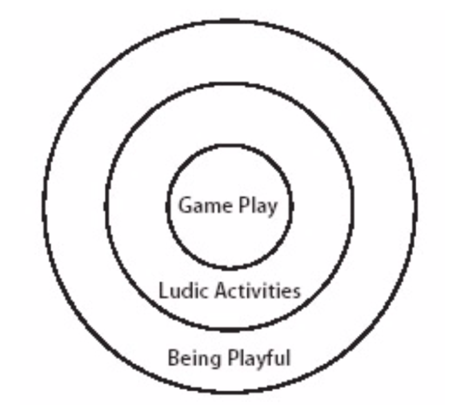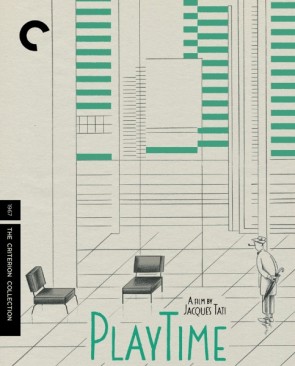Jonathan Volk returns to try and figure out what play is (and why some of the most playful people we know might opt out of playing games). This is Part 1 of a longer series called A Seat at the Table, which examines the ways we construct and close off our game tables.
Part 1: What Is Play?
Growing up, my mother refused to play games with me and my brother because she said we were violently competitive, and that our play always ended in emotional, and sometimes physical, calamity. She preferred to draw in her notebook while we screamed and threw our Game of Life station wagons, pegged with the blue and pink simulacra of the modern family, trapped in a game with one exit (a mansion or a station wagon to die in). For my mother, being playful on the edges of our play was enough; she didn’t need to wade into the accusations, the cheating, the emotional solvency of pre-teens, or the chance-mechanisms dealing out raw fates.
My mother is a playful person. By that, I mean she is observant and devious, lawful and chaotic. Playfulness feeds off these kinds of paradoxes: the playful person doesn't seek an answer to whether or not the tree falling in the empty forest makes a sound; no, the playful person pushes over more trees in her thinking, listening to the cascading silence, gleeful about the power experienced by doing something impossible, with impossible consequences.
When a committee of black vultures landed on the roof of my mother's retirement community—a place where the front drive is frequently blocked by ambulances teamed by unhurried paramedics who move at the pace of an emergency that is someone else's—she insisted I take the picture.
“But it’s so morbid,” I said.
“It’s so on the nose,” she said, laughing, “it’s so on the roof.”

Jacques Tati’s Playtime is one of my favorite movies precisely because it is so playful, restlessly joking, never burdened by the difficult work of being serious. The film is functionally plotless, telling a series of visual jokes over two hours. It has no main characters, set in a Paris of bright plate glass, rigid lines, dividing walls and planes. Tati films mostly from a distance, so that several jokes can happen simultaneously but in opposite corners of the frame (and the frame is huge, shot in 70mm), which makes the film both rewatch-able and missable, more like a fish tank than a narrative, with the viewer always in danger of not looking in the right place at the right time. Playtime plays with the familiar metaphor of urban confinement, suggesting that cities and parks and shopping centers, all these urban technologies meant to bring us closer, have only deepened our alienation. But Tati’s film proves that playfulness is exactly what can save us from that alienation; by restlessly looking, and allowing our perspective to plink against the disjointedness of modernity, we are actually free to connect what is fun and funny about this otherwise cruel game of life. That roosting committee of black vultures, harbingers of doom from one perspective, can make us moan or, if we shift playfully in our looking, we can moan and laugh.

So do we have a working definition of what play is? Can we define play through negation, by examining those who are mostly serious?

The mostly serious move through life in a kind of holy alienation; I can’t help but think of Jesus (chaotic good) in the Temple, turning over the tables of the money-changers and the sellers of doves. The table is symbolically important to gamers, of course, and the turning over of a table might be called gaming’s original sin. I don’t want to blame Jesus for the serious business of protesting the money-changers, but the doves? Come on, Jesus—live a little!

I’ll make this inquiry more immediate: why do we play board games?
If it takes you a while to formulate an answer beyond, “because they are FUN!”, then you might be overthinking the question, the hobby, and the role of play. I won’t spend too much time going over the various disciplines that try to answer what play is and why it matters, except to say that evolutionary psychologists and biologists note its prevalence in higher-functioning animals (lots of mammals) as possible modes of preparation (“I fetch, therefore Iams”, sorry) ; psychologists are also quick to point out cultural variations in play, painting wide presumptive swaths about what the styles of play say about the styles of people. In this discourse, Asian play tends to encourage cooperation and team-building and is aligned with political systems of organization like communism; Euro/American play tends to celebrate individual success and is aligned with economic systems of organization like capitalism. In their book Rules of Play: Game Design Fundamentals, Katie Salen and Eric Zimmerman write, “Play is free movement within a more rigid structure.” They explain their definition with the following incredibly detailed image:

This ludic dartboard is actually useful, if we break it down by category. The bullseye, the Game Play category, is the most rigid and rule-defined; games that follow formalized rules, including heavily structured examples like Gloomhaven, land here in the dense core. The Ludic Activities category isn’t as formalized or rule-bound as Game Play. Avoiding the cracks in a sidewalk because your obsessive mind has decided they’re lava would be an example of one ludic activity; a faithful dog returning to you a slobbery branch 50% of the time is another. The Being Playful category is the shaggiest, but it remains structurally bound, revolving like a distant, demoted planet around the edges of what’s fun. Coming up with puns or adopting a funny voice are examples. The ludic dartboard means to visualize how play is structural—meaning it is bound up, choate, orderly. But play is also the exercise of “free movement” within those same structural boundaries, like a guitar solo that stays in time with the rest of the band, or a magician agreeing to never really saw anyone in half. The rules of play aren't real, but, in play, they are really followed.
Essentially, all playful people understand the rules, loose as they can be, and are engaged in pushing against them and springing elastically back, like professional wrestlers flinging one another into the ropes, or one of Pina Bausch’s dancers in Cafe Müller hurtling herself at fallen chairs while a rescuer swoops in to spare her from self-destruction. Both the wrestler and the dancer are engaged in this exhilarating, possibly fatal tussle between the real and the imagined, what is fake and what is essential.

I find this talk of play fascinating, but I’m going to narrow the scope even further with this question:
What keeps the most playful people from taking a seat at the board game table?
The answers to why people like my mother don't take a seat at the game table are complex, historically situated, broadly cultural. I keep wondering why some of the most playful people I know refuse to take a seat, or, once seated, surrender to play like a broken prisoner. Board gamers are prisoners too, trapped in that great structural dartboard of playfulness, though they differ in this respect: after being told she can go, her iron door propped open, daylight glowing down the dungeon stairs, the board gamer finds she can't bear to leave her cell. One prisoner moans in pain, the other moans in delight. How curious that play can feel like a stinging punishment to some, and so an unbearable pain, and yet to others that unbearable pain is the reason for bearing living.
So why do playful people like my mother reject the game table? (We table those people who aren’t playful; they can hold their serious convos.) Maybe some playful people can’t bear the intense structural pressure, powerful like the ocean bottom, that the ludic dartboard’s center necessitates. Put another way: the act of reading a 20-page booklet about how to have fun is, for these playful people, antithetical to the nature of play. Play needs to be spontaneous and lawful only in the sense that laws are plastic, and liable to change. Maybe for others, play can’t be imposed from above. In this line of thinking, the player at the game table needs to happily submit to a higher authority. If happy submission to a higher authority isn’t possible, then count me out, bro! I admit I submit happily to these higher authorities with a kind of dogged dignity. But dogs know what I’m talking about: the leashed dog often looks happier, to me, than the unleashed dog; dogs love to play against their masters’ cruel tugs; when they discover the limit of the leash and pull beyond it, they bound into the world beyond the leash which is vast and vastly lawless - and unlikely to reward them with something delicious. This is why, I think, most runaway dogs try to find their way back: being leashed to a limit is better than the constant hunger that attends freedom. The "fun" is in the restriction of boundaries.
Some questions to consider as we set up our game tables:
- Is our game table circular in the Arthurian sense? (questioning social hierarchy and the social power of individual players)
- Does our game table consider the role of justice in play? (questioning fairness and suffering)
- Does our game table consider intersectional capability and preference, as well as the lusory attitudes of players? (questioning what heuristics lead to victory—for example, does the game reward improvisational skill? mathematics ability? a deep-field vision of strategy, as in the master chess player who sees 20 moves ahead? artistic ability? sense of humor?)
- Is our game table open to various levels of player experience? (questioning expertise, experience, and complexity)
- Is our game table dominated by a particular group/identity? (questioning the perceived comfort and safety of spaces from a minority perspective)
- Do we want our game table to be open or closed? (questioning accessibility and “membership”)
- Does our game table preference games with winner-take-all-conditions to cooperative games? (questioning individual success versus collective success)
- Does our game table preference some themes over others? (questioning the value of, say, WWII games over space-themed games)
Many of these questions overlap and intersect with one another, and I’m really open to revising these with input from readers.
In my next piece, I'll focus on #3 and #4, specifically how complexity, capability, and lusory attitudes work with and against each other. I think it important to mention that the goal here isn’t to condemn a category of game tables, or to promote one kind of game table above all others; rather, I think it can be fruitful to understand the structural organization of our game tables, what they hold sacred, who they might explicitly and implicitly exclude, and what some people, who aren’t invited (or who’ve declined the invitation) but can hear from across the city, so to speak, who can hear the chairs sliding out from the table, the velvet dice pouches silently untying, cardboard and wood and lucite pieces skittering into the open, what these people, who can hear but aren’t there, are saying about our fun. We can only hope it's not serious.
 Games
Games How to resolve AdBlock issue?
How to resolve AdBlock issue? 




















